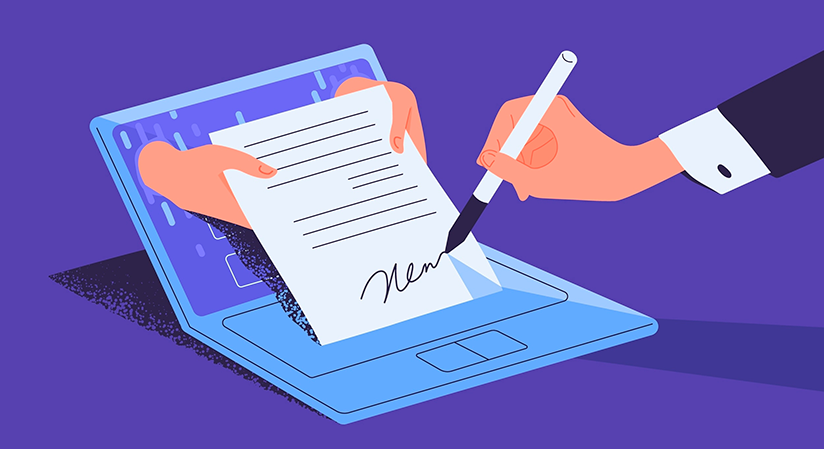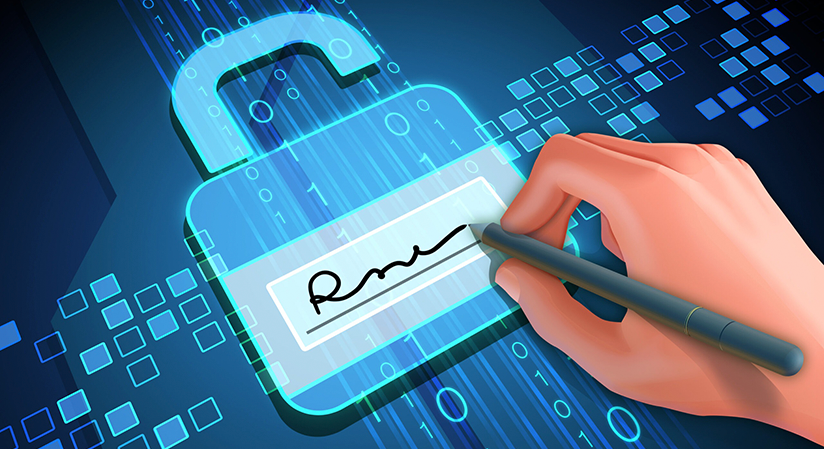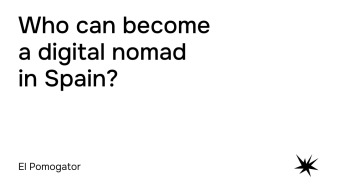 27/09/2024
27/09/2024
 Reading time: 7 min
Reading time: 7 min
Why do you need a Digital Certificate in Spain?
A Digital Certificate is an electronic key that allows its owner to sign documents from the comfort of their home. It is designed to ensure confidentiality and simplify administrative procedures, providing a secure way to confirm that information has not been altered and is genuinely signed by the designated individual.


Go back to the blog
What is a Digital Certificate?
The Spanish Digital Certificate serves as a key for user identification in the digital space. There are two types: a nationwide certificate issued by the Spanish Mint ("Fábrica Nacional de Moneda y Timbre") and a regional certificate used in certain areas for local government interactions. It's recommended to apply for the nationwide certificate, as it covers a broader range of transactions. The primary purpose of the Digital Certificate is to streamline interactions with government bodies and commercial organizations. It enables users to securely send encrypted data and authenticate their identity online. For example, it allows you to file tax returns, check traffic fines, renew a foreigner's residence permit, access healthcare services remotely, and sign contracts and agreements. This means you can complete these processes online without needing to be physically present. The certificate includes:- The owner's name and tax identification number;
- Signature codes and the validity period;
- Details of the issuing organization.
Types of Digital Certificates
There are several types of Digital Certificates, each serving a specific function:- Certificado de Persona Física: This certificate allows individuals to identify themselves online and exchange information with government agencies, banks, or other organizations securely. It ensures full confidentiality, a crucial requirement for safe interactions. With this certificate, you can be sure that only you and your intended recipient have access to the information.
- Certificado de Usuario: This certificate is commonly used for identity verification in online systems, such as internet banking, e-commerce, etc., ensuring secure identification and protecting information from unauthorized access.
Why do you need a Digital Certificate?
In the digital age, a Digital Certificate is essential as it allows you to perform various procedures without visiting the relevant administration offices. With a Digital Certificate, you can:- File tax returns
- Pay traffic fines
- Register a marriage certificate
- Request historical registration records (Padron Histórico)
- Obtain a certificate of no tax debt, a property registry excerpt in Spain, and a criminal record check
- Apply for educational diploma recognition, Spanish citizenship, unemployment benefits
- Pay fees and taxes
Key benefits
The Digital Certificate in Spain provides convenient interaction between citizens, companies, and government institutions. Its benefits include:- Speed: It allows for the electronic signing and exchange of documents, significantly reducing the time required for handling paper copies. For example, tax filing and contract signing can all be done online, reducing costs.
- Enhanced security: The certificate provides unambiguous identification of transaction participants, preventing forgery. This is particularly important when a high level of trust is required, such as in transferring confidential information or conducting legally significant transactions. Additionally, the risk of losing or damaging documents is reduced, as everything is stored electronically, making the process more reliable.
- Cost reduction: The need for paper is minimized, along with printing, delivery, and storage expenses. This helps save both material and time resources, which is especially relevant for companies.
- Transparency and convenience: You can easily track and control all stages of document processing, quickly verifying the status and authenticity of documents.

How to Obtain a Digital Certificate
The right to obtain a Digital Certificate in Spain is granted to any adult citizen or foreigner. However, foreigners must have a local tax identification number (NIE). To download and install the certificate, identification is required. This can be done in one of two ways: by visiting an accredited office or by undergoing video identification. The latter option is available only to DNI holders.Required Documents
Individuals need to provide:- NIE Certificate (for non-residents), TIE card (for residents), and a passport for identity verification;
- Gmail address and phone number for notifications;
- A completed and signed authorization form for verification.
Step-by-Step guide to obtaining a Digital Certificate
The process of obtaining a Digital Certificate in Spain involves several steps:- Check Browser Compatibility: The process must be completed using a specific browser, such as Internet Explorer or Firefox version 68 or earlier. Chrome and Edge are not suitable.
- Visit the FNMT Website: Go to the FNMT website and select "Persona Física." On the page that opens, you'll find all the necessary information.
- Obtain Certificate Software: Click "Obtener Certificado Software" in the left menu. Download the software by selecting "Configuracion Previa" and then "Area de Descarga de Configurador FNMT." Choose the version corresponding to your operating system. The software installs automatically after granting permission.
- Request the Certificate: Return to the previous page and select "Solicitar Certificado" in the left column. Enter your details, agree to the terms (check the box), and click "Enviar peticion." You will be asked to create and enter a password, which you must remember, as it will be needed later during installation. After submitting the request, you'll receive an email with a unique number tied to your NIE.
- Verification at an Accredited Office: The next step is to visit an authorized office with your application number and NIE/TIE. You can find the specific office location using the "LOCALIZADOR DE OFICINAS" tool. This could be an administrative center in Spain or a consulate abroad.
- Download and Install the Certificate: After verification, you'll receive an email with a code needed to download and install the certificate. Use the same browser that you used to submit the request for this process to proceed correctly.
Certificate Validity and Renewal
Regardless of residency status, the FNMT Digital Certificate is valid for three years. To renew it, you will need to visit an appropriate institution again for identity verification. You can also revoke the certificate if you suspect someone else is using it. Typically, you'll receive an email notification when the certificate is about to expire. Renewal can be done up to 60 days before expiration by following the renewal link ("renovar el certificado"). If the certificate has already expired, renewal will not be possible.








 PDF 5,6 MB
PDF 5,6 MB